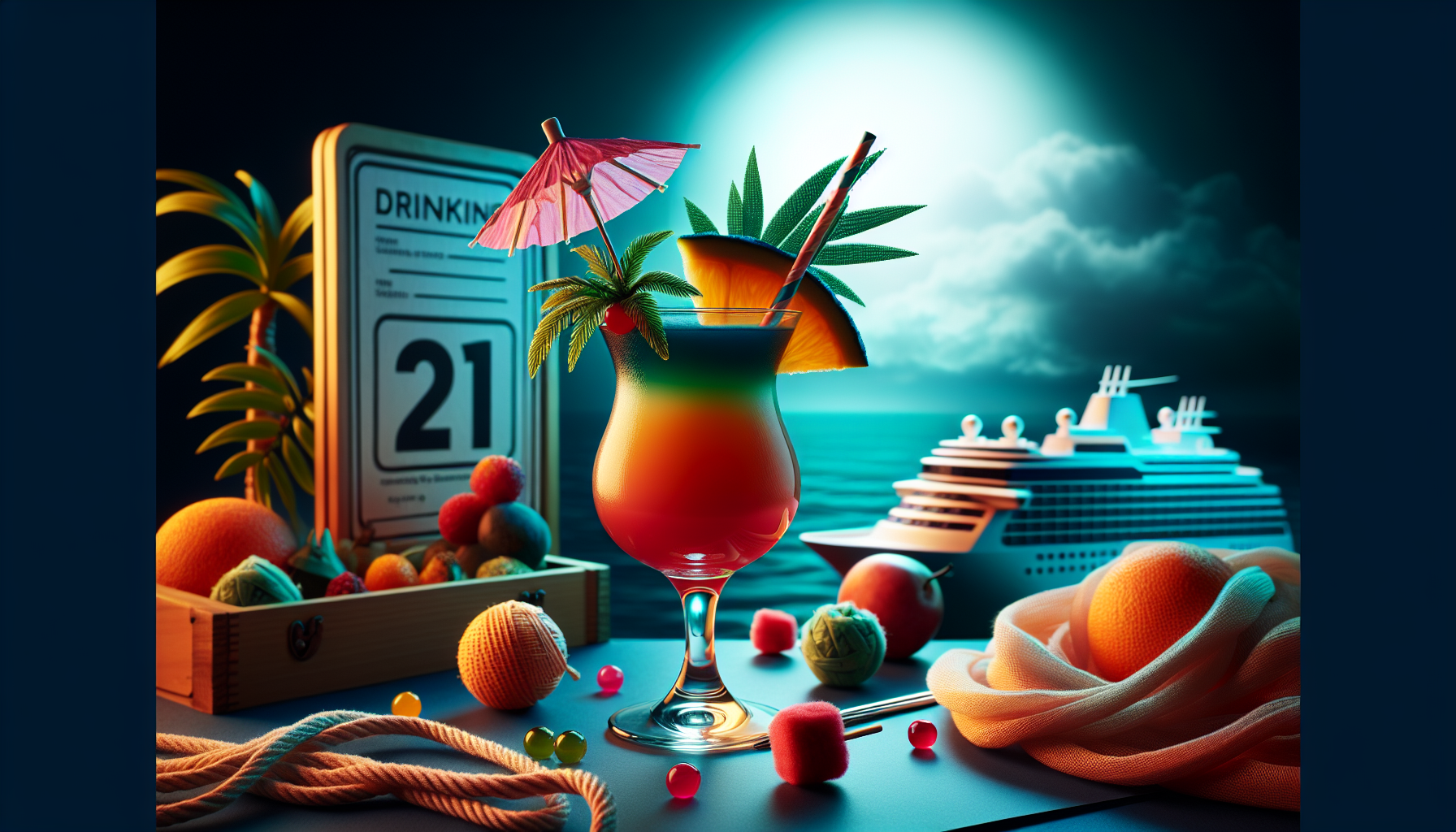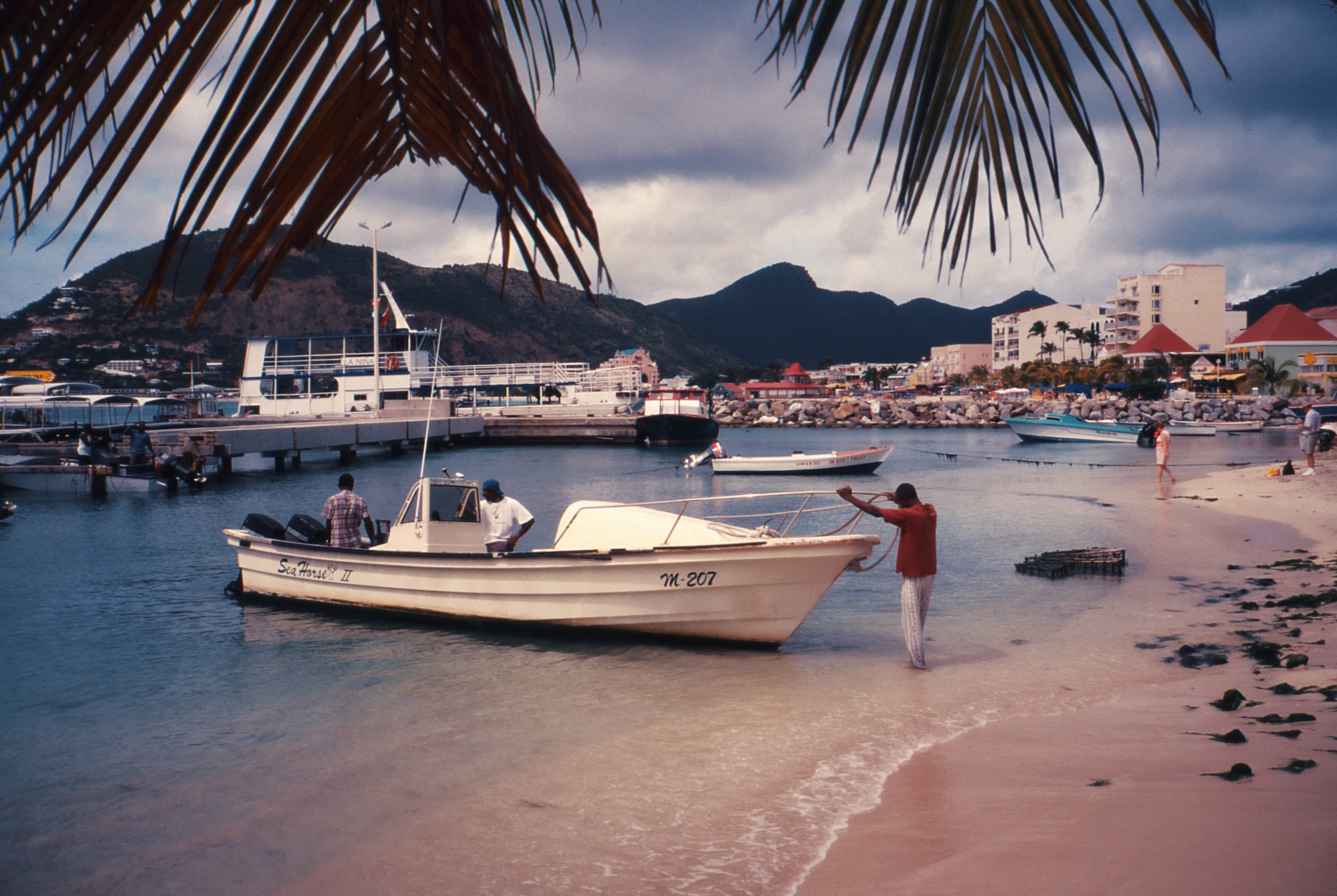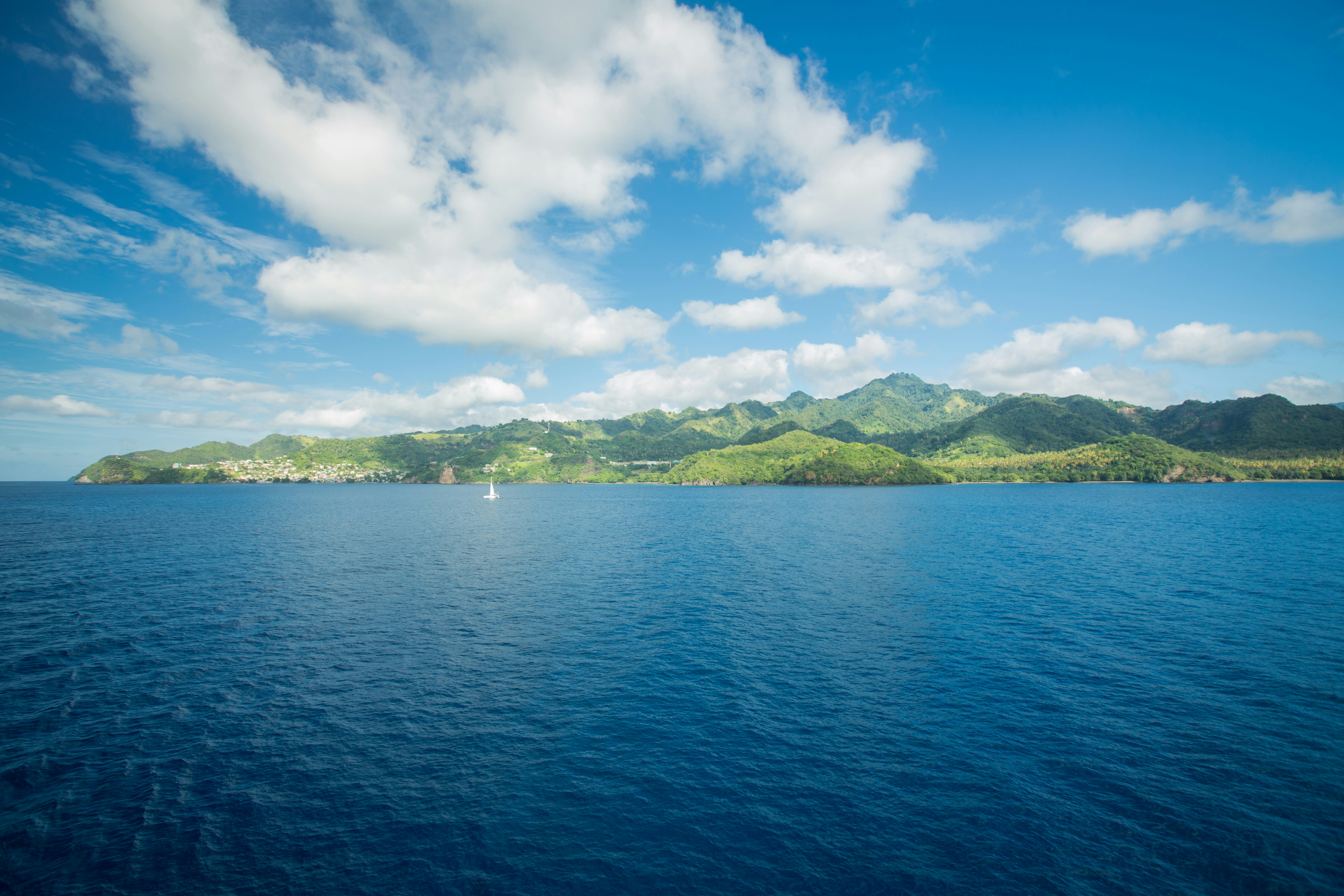
So you’re planning a Caribbean cruise and you’re wondering what the legal drinking age is onboard those luxurious floating resorts? Well, let’s get straight to the point. The legal drinking age on Caribbean cruise ships is a bit of a mixed bag, and it can vary depending on the cruise line and even the specific itinerary. While some cruise lines adhere to the drinking age of their home country, others set a higher age limit. So, if you’re worried about whether you can enjoy a refreshing cocktail or two while sailing through turquoise waters, keep reading to uncover the answers.
Overview of Caribbean cruise ships
Introduction to Caribbean cruise ships
Caribbean cruise ships have gained immense popularity as a vacation option for travelers of all ages. Offering a perfect blend of picturesque destinations, luxurious amenities, and exciting onboard activities, these cruise lines have something to offer for everyone. Whether you are a thrill-seeker looking for adventure or someone seeking tranquility on pristine beaches, the Caribbean cruise ships cater to diverse interests and preferences.
Popular destinations of Caribbean cruise ships
The Caribbean region encompasses a multitude of stunning destinations that are frequented by cruise ships. From the white sandy beaches of the Bahamas to the lush rainforests of Costa Rica, passengers can explore a myriad of tropical paradises. Other notable destinations include the pristine waters of Jamaica, the vibrant streets of Puerto Rico, and the duty-free shopping haven of St. Maarten. Each island offers a unique cultural experience, allowing passengers to immerse themselves in the vibrant local traditions and indulge in various recreational activities.
Legal jurisdiction on Caribbean cruise ships
Caribbean cruise ships operate under specific legal jurisdictions, which govern various aspects of their operations, including drinking age policies. While cruise ships may sail through international waters, they are subject to the laws of the country under which they are registered. These legal jurisdictions, often referred to as “flags of convenience,” can vary from country to country, leading to differences in the minimum legal drinking age and other regulations onboard.
Different cruise lines, different policies
Cruise lines operating in the Caribbean
Numerous prominent cruise lines operate in the Caribbean, each presenting its unique offerings and ambiance. From the lively atmosphere of Carnival Cruise Line to the sophisticated elegance of Cunard Line, there is a cruise line to suit every taste. Royal Caribbean International, Norwegian Cruise Line, Disney Cruise Line, Princess Cruises, Celebrity Cruises, Holland America Line, MSC Cruises, Costa Cruises, and Cunard Line are among the most well-known and popular cruise options in the region.
Varied policies on drinking age
It is essential to be aware that different cruise lines have varying policies regarding the minimum legal drinking age onboard their ships. While some cruise lines adhere to the minimum drinking age set by their flag of convenience or the country of departure, others adopt a stricter policy to ensure the safety and well-being of their passengers. Understanding the policies of each cruise line is crucial before embarking on a Caribbean cruise, especially for those traveling with underage passengers.
Importance of checking specific cruise line’s policy
Before booking your Caribbean cruise, it is crucial to research and understand the drinking age policies of the specific cruise line you plan to sail with. While the legal drinking age may vary from ship to ship, some cruise lines have established consistent policies across their fleet. By checking the specific cruise line’s policy, you can ensure compliance with the regulations and avoid any potential issues during your vacation.

Major cruise lines and their drinking age policies
Carnival Cruise Line
Carnival Cruise Line requires passengers to be at least 21 years old to purchase, possess, or consume alcoholic beverages on their ships, regardless of the ship’s departure port or itinerary. However, guests aged 18-20 may consume alcoholic beverages if they are accompanied by a parent or guardian who acknowledges the responsibility.
Royal Caribbean International
Royal Caribbean International follows a similar policy to Carnival Cruise Line, setting the minimum drinking age at 21 years, except for sailings from Europe, Australia, and New Zealand, where the minimum drinking age is 18 years. Exceptions to the minimum drinking age are also made for guests under 21 who are married or are cruise line employees.
Norwegian Cruise Line
Norwegian Cruise Line requires passengers to be at least 21 years old to consume alcoholic beverages onboard. However, guests aged 18-20 may consume wine and beer if their parent or legal guardian signs a beverage waiver acknowledging their consent.
Disney Cruise Line
Disney Cruise Line adheres to a minimum drinking age of 21 years for all alcoholic beverage consumption, with no exceptions granted for passengers under the legal drinking age.
Princess Cruises
Princess Cruises follows a similar policy to Carnival Cruise Line and Royal Caribbean International, setting the minimum drinking age at 21 years. However, guests aged 18-20 may consume alcohol with the permission of a parent or legal guardian.
Celebrity Cruises
Celebrity Cruises has set the minimum drinking age at 21 years, except for itineraries departing from Europe, Asia, Australia, or South America, where the minimum drinking age is 18 years. Passenger under 21 may only consume alcohol when sailing with their parent or legal guardian.
Holland America Line
Holland America Line stipulates a minimum drinking age of 21 years, regardless of the departure port or itinerary. Passengers under 21 may not consume alcohol onboard.
MSC Cruises
MSC Cruises adheres to a minimum drinking age of 21 years for all itineraries. Passengers under 21 are not allowed to consume alcohol onboard.
Costa Cruises
Costa Cruises sets the minimum drinking age at 18 years for all itineraries, irrespective of the departure port. Passengers under 18 may only consume non-alcoholic beverages.
Cunard Line
Cunard Line requires passengers to be at least 18 years old to consume alcoholic beverages onboard, except when sailing in US waters, where the minimum drinking age is 21 years. Minors under the age of 18 must be accompanied by an adult.
Minimum legal drinking age in countries visited
Varying legal drinking ages in the Caribbean
The legal drinking age varies among the countries visited on Caribbean cruises. While some islands maintain a minimum drinking age of 18 years, others, such as the United States and Puerto Rico, enforce a minimum drinking age of 21 years. It is essential to familiarize yourself with the drinking laws of each destination to ensure compliance and avoid any legal complications.
Drinking age exceptions on cruise ships
It is essential to note that even if a country visited during a cruise has a lower legal drinking age than the cruise line’s policy, the cruise line’s policy will still apply onboard the ship. Cruise lines set their own rules and regulations, and they are accountable for enforcing their policies to ensure the safety and well-being of their passengers.

Guidelines and enforcement
ID requirements and age verification
Cruise lines typically require identification to verify a passenger’s age before purchasing or consuming alcoholic beverages. Acceptable forms of identification often include a government-issued photo ID, such as a passport or driver’s license. It is crucial for passengers to have valid identification onboard to comply with the age verification process.
Responsibility of parents and guardians
If traveling with underage passengers, parents and legal guardians play a crucial role in ensuring compliance with drinking age policies. It is the responsibility of parents and guardians to monitor the activities and behavior of their children, including their consumption of alcohol. They should familiarize themselves with the cruise line’s policies regarding parental consent and supervision for minors.
Potential consequences for underage drinking
Cruise lines take underage drinking seriously, as it poses risks to the well-being of both the passengers and the cruise staff. Consequences for underage drinking can vary among cruise lines, ranging from confiscation of alcohol and suspension of drinking privileges to more severe actions, including removal from the ship or involvement of local authorities at the ship’s next port of call. It is crucial to abide by the rules and regulations set forth by the cruise line to avoid any potential legal, disciplinary, or safety issues.
Cruise line policies on alcohol purchase for minors
While the drinking age policies of cruise lines generally restrict underage passengers from purchasing or consuming alcohol, some cruise lines offer parental consent programs that allow passengers aged 18-20 to enjoy alcoholic beverages with the permission of a parent or legal guardian. These programs typically require the completion of a consent form and may have specific restrictions and guidelines that must be followed.
Alcohol packages and policies
All-inclusive alcohol packages
Many cruise lines offer all-inclusive alcohol packages, available for purchase at an additional cost. These packages provide passengers with unlimited access to a wide selection of alcoholic beverages throughout their cruise. However, it is important to note that the purchase of an alcohol package does not exempt underage passengers from adhering to the minimum drinking age policies of the cruise line.
Age restrictions for alcohol packages
While alcohol packages may be available for purchase by adults of legal drinking age, cruise lines typically enforce age restrictions for the purchase and consumption of these packages. Minors who have not reached the legal drinking age are ineligible to purchase an alcohol package and must comply with the drinking age policies established by the cruise line.
Parental consent for minors
In some cases, cruise lines may allow minors aged 18-20 to purchase and consume alcohol packages with the consent of a parent or legal guardian. Similar to the parental consent programs for individual alcoholic beverages, this requires the completion of a consent form and compliance with any additional guidelines and restrictions set by the cruise line.
Limitations on alcohol consumption
While cruise lines may offer all-inclusive alcohol packages, it is important to note that they may impose limitations on the quantity and frequency of alcohol consumption to maintain a safe and responsible environment onboard. Intoxication and excessive drinking can pose risks to the health and safety of passengers, which is why cruise lines encourage responsible alcohol consumption and reserve the right to refuse service to any passenger exhibiting signs of intoxication.

Non-alcoholic beverage options for minors
Availability of non-alcoholic beverages
Cruise lines understand the importance of providing non-alcoholic beverage options for passengers of all ages, including those who are underage. These options often include a wide array of refreshing and flavorful beverages, such as mocktails, virgin cocktails, smoothies, soft drinks, and non-alcoholic specialty coffees and teas. Passengers can enjoy these non-alcoholic beverages throughout their cruise, providing them with delicious alternatives to alcohol.
Specialty non-alcoholic drink menus
To cater to the preferences of minors and non-alcohol-drinking passengers, cruise lines may feature specialty non-alcoholic drink menus, offering a variety of creative and enticing beverage options. These menus may include non-alcoholic versions of popular cocktails, specialty mocktails created by professional mixologists, and unique non-alcoholic concoctions that are both visually appealing and delicious.
Safety considerations for underage drinking
Monitoring alcohol consumption
Cruise lines prioritize the safety and well-being of their passengers, especially when it comes to underage drinking. To ensure a safe environment, cruise ship staff, including bartenders and restaurant servers, receive extensive training on identifying signs of intoxication and monitoring alcohol consumption. Staff members are instructed to refuse service to any passenger who appears to be intoxicated or underage, further reinforcing the cruise line’s commitment to responsible alcohol consumption.
Preventing excessive drinking
Excessive drinking is discouraged onboard Caribbean cruise ships, regardless of the passenger’s age. Cruise lines implement measures to prevent excessive drinking, such as limiting the number of alcoholic beverages that can be served to an individual at one time. These policies help maintain a safe and enjoyable environment for all passengers and prevent the misuse of alcohol.
Training for cruise ship staff
Cruise ship staff undergo comprehensive training programs to ensure they have the knowledge and skills necessary to enforce drinking age policies, responsibly serve alcohol, identify signs of intoxication, and handle situations that may arise from underage or excessive drinking. This training equips staff members to effectively address any issues related to alcohol consumption and promote the safety and well-being of the passengers.
Emergency response procedures
In the event of any alcohol-related emergencies onboard, cruise lines have established emergency response procedures to address the situation promptly and effectively. These procedures include medical staff trained to handle alcohol-related incidents, access to necessary medical equipment and facilities, and communication with the ship’s command to make necessary decisions regarding the safety and well-being of the individuals involved.
Additional factors to consider
Legal liability of cruise lines
Cruise lines bear legal liability for ensuring the safety and well-being of their passengers, particularly when it comes to underage drinking. By implementing and enforcing drinking age policies, cruise lines aim to minimize risks associated with underage drinking and fulfill their legal obligations. The consistent enforcement of these policies helps protect both the passengers and the cruise line from potential legal repercussions.
Implications for travel insurance
When considering travel insurance for a Caribbean cruise, it is important to review the policy’s coverage and exclusions related to alcohol-related incidents, especially for underage passengers. Some travel insurance policies may have specific provisions regarding underage drinking, which can affect coverage in the event of alcohol-related emergencies or incidents. It is advisable to thoroughly read and understand your travel insurance policy to ensure you have appropriate coverage.
Consent forms and waivers
In cases where cruise lines offer parental consent programs for underage alcohol consumption, completion of consent forms or waivers may be required. These forms typically outline the terms and conditions of the program and indicate parental acknowledgment and responsibility. It is essential for parents or legal guardians to fully comprehend and comply with the requirements outlined in these consent forms to ensure their underage children can enjoy the privileges of the program without any issues.
Consistency of policies across different ships
While many cruise lines have established consistent drinking age policies across their fleet, it is important to note that exceptions or variations may exist. Some factors that can lead to differences in policies include the cruise line’s flag of convenience, the specific laws of the country in which the ship is registered, and the ship’s itinerary. It is advisable to check the drinking age policies of the specific ship you will be sailing on to ensure compliance.
Updates and changes to drinking age policies
Drinking age policies on Caribbean cruise ships may occasionally change or be updated. It is recommended to regularly check the cruise line’s official website or directly contact their customer service for the most up-to-date information regarding their drinking age policies. Staying informed of any changes will help passengers plan accordingly and avoid any unexpected surprises onboard.
In conclusion, Caribbean cruise ships offer an enticing blend of luxurious accommodations, breathtaking destinations, and exciting onboard activities. However, it is essential for passengers, especially those traveling with underage individuals, to be aware of the drinking age policies of the specific cruise line they plan to sail with. Each cruise line has its own policies and exceptions regarding the minimum legal drinking age, and understanding and adhering to these policies is crucial to ensure a safe and enjoyable vacation. By familiarizing themselves with the guidelines, passengers can make informed decisions and have a memorable cruise experience in the beautiful Caribbean region.



